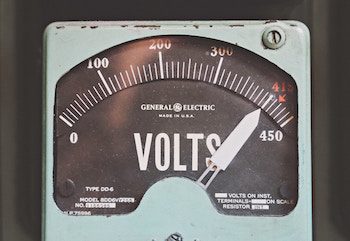
Photo by Thomas Kelley on Unsplash
If you live outside an urban center, you probably know all about using your phone as a WiFi hotspot. That means turning your cellular phone service into Internet service. And in reality, you can do it using either your smartphone or a special “WiFi hotspot” device. It’s a fantastic way to get fast Internet when you don’t have access to standard WiFi for whatever reason.
Over and over again, our colleagues ask these two questions at Office Hours. I’ll give the official Person Centered Tech answer to both of them.
- Is it HIPAA-secure to use my phone or WiFi hotspot device in my practice?
- What are the pros and cons of using my phone or WiFi hotspot device for telemental health sessions?
Is it HIPAA-secure to use my phone or WiFi hotspot device in my practice?
Yes!
Roy has repeatedly recommended it, in fact, as an alternative to using the WiFi in places like coffee shops, hotels, and airports. He even likes to show off the fancy WiFi hotspot device he carries around for exactly that reason.
A really important note is that you don’t just need to avoid public WiFi when you’re using your practice email or your online records. You need to avoid public WiFi all the time with any of your devices that you use in your practice at all. So that smartphone you use to text or email with clients? When you’re out and about, keep it set to using your cellular data plan and stay off the public WiFi.
What are the pros and cons of using my phone or WiFi hotspot device for telemental health sessions?
Using your phone or WiFi hotspot device for telemental health can work perfectly well or it can work terribly. You need to consider these two things:
- Speed
- Data plan limits
Cellular service these days can be super fast. Sometimes it’s even faster than your typical home Internet connection.
But that speed depends on you being in a spot where you have a strong cellular connection with high-level service. If your phone says it has an “LTE” connection going, then you’ve got plenty of speed. If it’s slower than LTE, or you don’t have full bars, your connection might be slow or it might go in and out. Either of those situations isn’t so great for telemental health.
The downside of that lightning fast speed is that the phone company puts tight limits on it. When you sign up for phone service, you also sign up for a data plan. Some plans allow you a specific amount of data, e.g. “I have a 20 gigabyte plan.” There are also unlimited data plans, but they often will slow down your connection — called “throttling” — when you start to use a lot of data.
So if you use your phone service for one or two telemental health sessions in a week, and you have a good data plan, then you probably won’t hit your limits. If you do more than that, though, then you need to either closely monitor your data usage or get a bigger data plan. High-limit plans may be available for more money. At Office Hours, we have helped members who live in rural areas to find some surprisingly effective cellular data plans as the sole Internet service for their practices. So we know the services are out there, unless your practice is very, very rural.
Conclusions
It’s possible that your cellular data plan can be a great way to get secure, personal Internet service for your practice and even for providing telemental services. It’s also possible that it will work terribly — it all depends on what services are available to you and what kind of data plan you choose.
Do you want to bring your own questions to Liath and Roy at Office Hours? Become a member and get Office Hours 4 times/month — along with tons of CE hours, our HIPAA compliance tools, and a lot more!

 This is Therapy Tech Hot Topics with Liath. Our Deputy Director, Liath Dalton, shares the highlights of topics that are coming up again and again at our 4 times/month
This is Therapy Tech Hot Topics with Liath. Our Deputy Director, Liath Dalton, shares the highlights of topics that are coming up again and again at our 4 times/month 